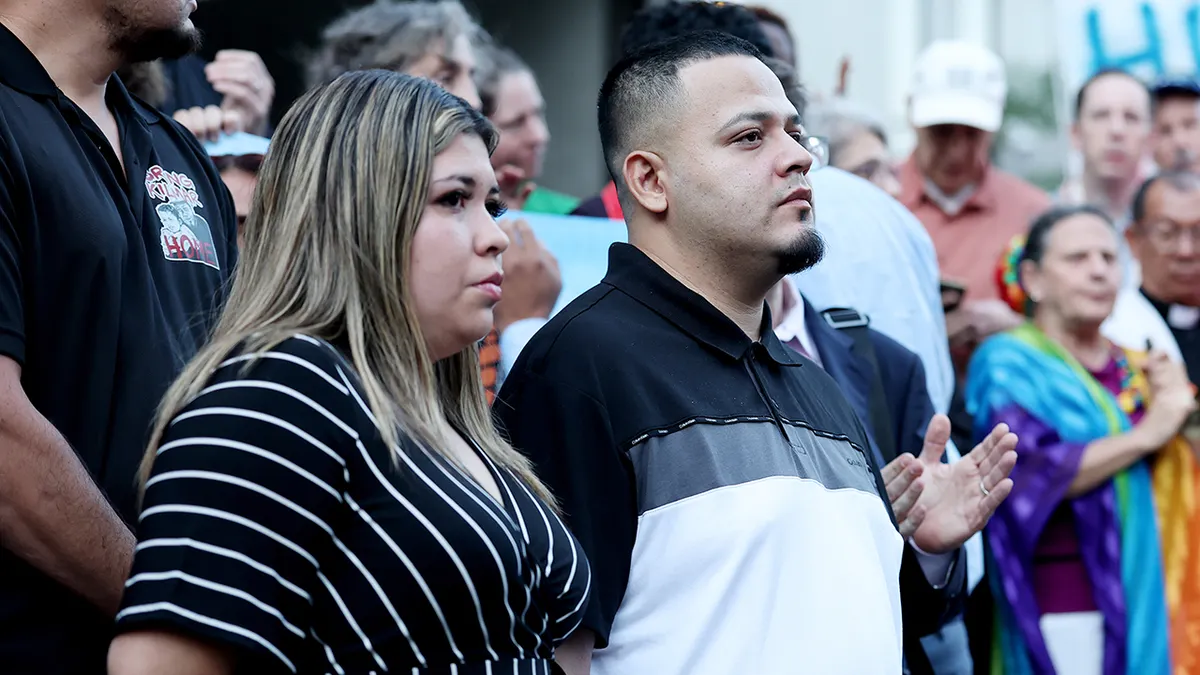The Trump administration has sparked fresh controversy after informing lawyers of Kilmar Ábrego García, a 30-year-old Salvadoran man at the heart of a heated immigration battle, that he could be deported to Eswatini, the small southern African kingdom formerly known as Swaziland. The decision marks yet another twist in a long-running case that has already seen the US government propose multiple destinations for his removal, highlighting the complexities and political tensions surrounding immigration enforcement.
According to emails obtained by CBS and shared with the BBC, US immigration officials reversed an earlier decision to deport Ábrego García to Uganda following his claims that he would face persecution there. While the officer involved dismissed his fears as “hard to take seriously,” the email noted that the US would nonetheless honor his request not to be sent to the East African country. Instead, Eswatini was put forward as a new destination, despite the fact that Ábrego García has no ties whatsoever to the landlocked monarchy bordered by South Africa and Mozambique.
This marks at least the fourth time the US has attempted to designate a country for Ábrego García’s deportation. In March, he was mistakenly deported to El Salvador, his country of birth, only to be returned after the US government admitted to removing him in error. Upon his return, he faced criminal charges and was later accused of human smuggling, charges to which he pleaded not guilty. US officials have also alleged that he is affiliated with the notorious MS-13 gang, a claim he has repeatedly denied.
The case has become emblematic of the Trump administration’s aggressive stance on immigration, with critics arguing that the shifting decisions over Ábrego García’s fate expose the lack of clarity and humanitarian consideration in the system. The announcement of Eswatini as a possible destination has raised fresh concerns, especially given that the United States has already deported five individuals to the kingdom under a deal that remains largely opaque. Washington has described those deportees as “criminal illegal aliens,” a label that has prompted alarm within Eswatini about becoming a dumping ground for foreign offenders.
Eswatini, ruled by King Mswati III since 1986, is one of the world’s last absolute monarchies. While the US government has not disclosed the financial details of its deportation arrangements with the country, speculation persists that economic considerations may be at play. The United States is the fourth-largest market for Eswatini’s top export, sugar, and analysts believe that the government in Mbabane may be reluctant to risk tariffs or trade restrictions that could damage its fragile economy.
The deportation dispute also underscores the human cost of America’s hardline policies. Ábrego García first entered the United States illegally as a teenager from El Salvador and was arrested in Maryland in 2019 along with three others before being detained by immigration authorities. His case has since become a lightning rod in debates over border security, asylum rights, and the treatment of immigrants accused of criminal activity.
As the Trump administration presses ahead with efforts to deport him, the decision to propose Eswatini a country with which he has no connection, highlights the broader strategy of outsourcing immigration enforcement to smaller nations. Whether Eswatini will ultimately accept him remains unclear, but the situation has already fueled diplomatic and ethical questions about the extent to which the US is willing to go in pursuit of its immigration crackdown.














Leave a comment